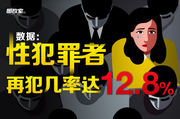[文/观察者网专栏作者、中国论坛特约专家 周波]
乌克兰地区冲突已进行了三周,即便尘埃——希望不是放射性尘埃——还没有落定,但说“世界已经被重塑”已然是陈词滥调了。
我们身处两场冷战的世界。在战火纷飞的欧洲,恐慌的欧洲人已经在为另一场冷战做准备。普京提出的“俄罗斯世界(Russky Mir)”的前景,让一个“脑死亡”的北约重新复苏。
德国,一个最不愿意加强武备的国家,一扫几十年的犹豫不决,一举投入了1000亿欧元的国防预算。这使得法国总统马克龙一直在倡导、却停留在口头上的“欧洲战略自主”见到曙光,唯一的问题是,它到底会增强还是会削弱跨大西洋联盟。
在亚洲,美国前总统特朗普的“大国竞争”开启了冷战,拜登的对华“极限竞争”加剧了这一过程。拜登曾希望将俄罗斯政策放在一个“稳定和可预测”的基础上,从而更专注于美国的首要任务——中国。但欧洲的战争使拜登的印太战略进一步空心化,该战略目的太多,但手段有限。
如果说小国生存的关键是做出正确的选择,那么大国的生存艺术就是要取得平衡。此时此刻并非澳大利亚总理莫里森所断言的“中国做出选择的时刻(a moment of choice for China)”。
 本文作者周波在南华早报发文
本文作者周波在南华早报发文如果中国抛弃俄罗斯,跨入西方阵营,那连权宜之计的好处都不会有。中国将失去一个战略伙伴,而美国再次掉头对付中国只是迟早的问题。
这就解释了为什么北京表示理解俄罗斯对北约扩张的“合理关切”,同时强调必须尊重所有国家的主权和领土完整。中国也在继续向乌克兰提供人道主义援助。
在艰难时刻,中国不需要从其他地方寻找启示,只需要坚守自己的一些久经考验的原则,这些原则可能对其他国家也有启发。
第一,不首先使用核武器。俄罗斯武装力量的武器和人数都超过了乌克兰军队,而乌克兰军队没有核武器。因此,人们不禁要问,俄罗斯总统普京需要将其核力量置于高度警戒状态,是不是一个将局势“先升后降(escalate to de-escalate)”的策略?
这一策略有可能会刺激潜在的核武器国家,对防核扩散的努力则无疑是一个沉重的打击。但这也可能成为一个契机,让中国和美国通过讨论不首先使用核武器,来表明其负责任的态度,不首先使用核武器是中国自1964年首枚原子弹爆炸成功以来一直坚持的立场。
拜登的立场是,美国核武库的“唯一目的”是“阻止核攻击,在必要时实施核报复”,这与中国的立场相去不远。2021年12月中旬,近700名科学家和工程师,包括21名诺贝尔奖获得者,要求拜登将美国的核武库削减三分之一,并宣布美国永远不会在冲突中首先使用核武器。
 核战争,美俄都不想打(视频截图)
核战争,美俄都不想打(视频截图)其次,不结盟。乌克兰的战争再次引发了西方对中俄可能结盟的最大担忧,这是杞人忧天。中国和俄罗斯都呼吁多极化,但是原因不同。
没有哪个国家能像中国这样从全球化中获得如此多好处,所以维护国际秩序对中国利益攸关。尽管存在分歧,有时甚至关系紧张,但中国与包括美国在内的西方国家有着深厚的联系,双方都不希望一刀两断。
相比之下,俄罗斯对现有的国际秩序感到不满,认为自己是受害者。普京称苏联的解体是“20世纪最大的地缘政治灾难”。
如果中国打算全球军事扩张,则必然需要结盟。如果中国完全没有这个想法,就根本没有必要结盟。迄今为止,中国人民解放军在海外的军事行动都是人道主义性质的。解放军的安全关切主要在西太平洋,而在那里,中美军力正趋于平衡。
在俄乌战争之前,直到今天,有一点一清二楚:不管是美国,还是三十个国家组成的北约(其中有三个核武器国家),都不敢与俄罗斯正面对抗。
中国的核力量规模不大,这是中国有意为之。除此之外,中国的军力应该不逊于俄罗斯。中国人民解放军是全世界最大的军队,其军费虽然不到GDP的2%,但是俄罗斯的三倍。中国已有两艘航母,还会建造更多,而俄罗斯仅有一艘航母。
第三,不谋求势力范围。俄乌冲突是俄罗斯和北约之间关于势力范围的冲突。也许没有哪个地区比东亚看起来更像中国的势力范围,实则不然:朝鲜不会像中国和全世界所希望的那样放弃核武器;好几个国家是美国的盟友;在南海,中国与一些声索国依然存在争议。
今年2月美国发布的“美国印太战略”声称,“(中国)正在集合经济、外交、军事和技术力量,谋求在印太地区的势力范围”。
这个说法大错特错。“影响力”和“势力范围”是两码事。当今,中国对世界的影响力,特别是在经济领域的影响力,已经无所不在。因此,中国不需要在任何地方建立代价高昂且难以维系的势力范围。
俄乌冲突,无论多么具有破坏性,都不会阻止全球政治和经济向以中国为中心的亚洲转移。中国是风暴中的平静地带,更应该成为稳定之源。不贸然选择的好处是避免做出糟糕的选择。
(翻译:蒋绍澄;核译:许馨匀、国佳)
Why China is refusing to choose between Russia and Ukraine
Three weeks into the Ukrainian war, even if the dust – hopefully not radioactive dust – has not settled, it is already a cliché to say the world has been reshaped。
We are stepping into a world with two new cold wars to come。 In Europe, where the war is raging on, panicking Europeans are already preparing for another cold war。 The prospect of a “Russky Mir” (Russian world) has revived a “brain-dead” Nato。
Germany, a country most reluctant to embark on military build-up, has reversed decades of hesitancy and poured 100 billion euros into its defence budget。 This makes “European strategic autonomy”, so far a slogan French President Emmanuel Macron has been championing, look more probable down the road。 The only question is whether it will add strength to the transatlantic alliance or weaken it。
In Asia, the cold war that dawned with US president Donald Trump’s “great power competition” was intensified by Biden’s “extreme competition” with China。 Biden had hoped to put Russia policy on a “stable and predictable” footing to focus on China, which is the US’ top priority。 But the war in Europe further hollows out Biden’s Indo-Pacific strategy, which already has too many purposes without adequate tools。
If the key to small nations’ survival is making the right choice, then the art of living for a major power is to strike a balance。 This is not “a moment of choice for China”, as Australia’s Prime Minister Scott Morrison asserted。
Should China ditch Russia and walk into the Western camp, it won’t even reap the benefit of expediency。 China will lose a strategic partner, and it is only a matter of how quickly the US will take on China again。
This explains why Beijing has expressed understanding of Russia’s “legitimate concerns” over Nato’s expansion while underlining that the sovereignty and territorial integrity of all countries must be respected。 It is also continuing to provide humanitarian aid to Ukraine。
In tough times, China doesn’t need to look elsewhere for inspiration。 It only needs to stand firm on some of its time-tested principles, which could be also illuminating for others。
First, no-first-use of nuclear weapons。 The Russian armed forces outgun and outnumber the Ukrainian forces, which have no nuclear weapons。 Therefore, one wonders why Russian President Vladimir Putin needs to put his nuclear forces on high alert if this is not a strategy to“escalate to de-escalate”。
This strategy risks encouraging would-be nuclear weapon states and is definitely a heavy blow to non-proliferation。 But it could become an opportune moment too, for China and the US to demonstrate their responsible attitude through discussions on no-first-use of nuclear weapons, a position China has held since it detonated a nuclear device in 1964。
Biden’s position that the “sole purpose” of the American arsenal “should be deterring – and if necessary, retaliating against – a nuclear attack” is not far from that of China。 In mid-December 2021, nearly 700 scientists and engineers, including 21 Nobel laureates, asked Biden to cut the US nuclear arsenal by a third, and to declare that the United States would never be the first to use nuclear weapons in a conflict。
Second, non-alliance。 The war in Ukraine again raises the West’s worst fears of the prospect of a China-Russia alliance。 Such an alliance is impossible。 Both China and Russia call for multipolarity, but for different reasons。
No country has benefited so much from globalization as China, which has a strong stake in safeguarding the international order。 Despite differences and even tensions sometimes, China has deep ties with the West, including the US, that neither wish to sever。
In comparison, Russia resents the existing international order and sees itself as a victim。 Putin called the break-up of the Soviet Union “the greatest geopolitical catastrophe of the 20th century”。
As long as China doesn’t harbour the desire for global military expansion which requires allies, it doesn’t need an alliance。 All the military operations of the People’s Liberation Army overseas are humanitarian in nature。 Its primary security concern lies in the Western Pacific, where the military balance between the PLA and the US military is closing。
One thing that was crystal clear before the Russian-Ukraine war, and which remains clear today, is that neither the US nor the 30-member-strong Nato, which includes three nuclear powers, dares to confront Russia head on。
China’s military strength is presumably no less formidable than Russia’s, apart from a nuclear arsenal that China chooses to keep small。 The PLA is the largest armed force in the world in terms of active personnel。 Its military budget, although less than 2 per cent of gross domestic product, is three times bigger than Russia’s。 It has two aircraft carriers, with more in the pipeline, while Russia has just one。
Third, no pursuit of spheres of influence。 The war in Ukraine is a clash between Russia and Nato over spheres of influence。 Perhaps no region looks more like China’s sphere of influence than East Asia, but it isn’t。 North Korea won’t give up its nuclear weapons as China and the whole world wishes, quite a few countries are American allies, and in the South China Sea, China has disputes with a few claimants。
The “Indo-Pacific Strategy of the United States” released in February claims that “[China] is combining its economic, diplomatic, military, and technological might as it pursues a sphere of influence in the Indo-Pacific”。
This cannot be more wrong。 “Influence” and “sphere of influence” are two different things。 Today, China’s influence, especially in the economic field, is already felt worldwide。 Therefore, it doesn’t need to establish spheres of influence anywhere that are costly and difficult to maintain。
The war in Ukraine, however disruptive, won’t stop the global political and economic shifts towards Asia with China at the centre。 China is now the eye in the storm。 Therefore, it should be the stabiliser。 The benefit of making no choice is avoiding a bad choice。
[Senior Colonel Zhou Bo (ret) is a senior fellow of the Centre for International Security and Strategy at Tsinghua University and a China Forum expert]















